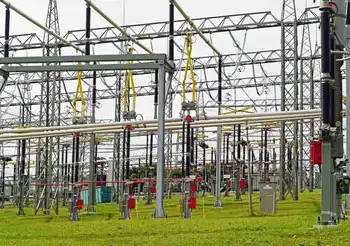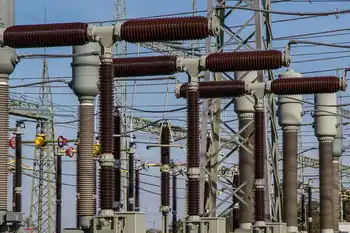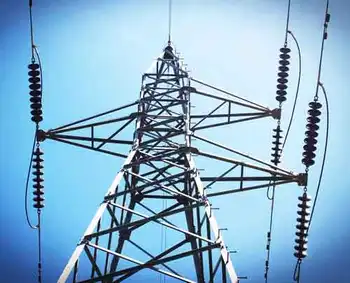Much assumed in plan to close coal-fired plants
By Toronto Star
CSA Z462 Arc Flash Training - Electrical Safety Essentials
Our customized live online or in‑person group training can be delivered to your staff at your location.

- Live Online
- 6 hours Instructor-led
- Group Training Available
This is, after all, the same man who said five years ago, as leader of the opposition, that he would close the plants by 2007.
Back then, the issue was smog: the Liberal platform said the coal-fired plants "create smog and threaten our health."
Now the issue has shifted to climate change, which was unmentioned in that 2003 Liberal platform.
Closing the coal-fired plants is part of McGuinty's plan – unveiled recently – to reduce Ontario's greenhouse gas emissions by 6 per cent below the 1990 levels, the Kyoto target.
It's an ambitious plan – far more so than Prime Minister Stephen Harper's – but it can only be realized if Ontario stops burning coal to make electricity, which accounts for almost half of our greenhouse gas emissions.
The problem is that those power plants – in Lambton, Nanticoke, Thunder Bay and Atikokan – also account for 6,434 megawatts of the province's power, or about 20 per cent of its electricity capacity.
Without coal, where is that power coming from?
To answer this question, McGuinty leaned heavily on a 2006 report from the Ontario Power Authority, which opined that the coal-fired plants could "potentially" be phased out by 2014, or even a few years earlier.
But the report said it would not be easy: "Replacing any of the remaining coal-fired generation represents a significant challenge during a period of transformation as Ontario's future electricity system takes shape."
Various new power sources are already under development, including: several gas-fired plants (which will provide 3,000 megawatts of power); refurbished reactors at the Bruce nuclear plant (1,500 megawatts); wind farms (1,100 megawatts); expanded hydroelectric capacity at Niagara Falls and in northern Ontario (700 megawatts); and increased imports from Quebec (1,250 megawatts).
Taken together with the 1,300 megawatts the government expects to save through conservation, these projects would offset the loss of coal-fired generation.
Of course, this projection assumes no loss of output from existing nuclear plants.
Unfortunately, several operating reactors at the Pickering plant are coming to the end of their life spans around 2014. A feasibility study is under way on extending their lives through refurbishing, but that is an iffy proposition.
The government is committed to building new nuclear power plants, but those are at least a decade away. Ditto for any power from proposed hydro dams in Manitoba and Labrador.
Additional gas-powered plants could be built, but they might be blocked by NIMBYism.
And converting the Nanticoke plant from coal to gas has been deemed not to be cost-effective.
In other words, the phasing out of coal-fired plants by 2014 is no sure thing, notwithstanding McGuinty's attempt to dress the promise up as a government regulation.
A regulation can literally be changed at the stroke of a pen – with the signatures of a few cabinet ministers.
After unveiling his climate-change plan on Monday at the Shared Air Summit in Toronto, McGuinty was approached by a visiting official from Michigan. As McGuinty later related the story to reporters, the man told him that the proposal to close the coal-fired plants was "astonishing."
Indeed.











